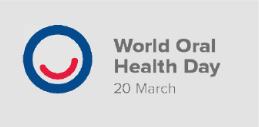Happy mouths making happy bodies on world oral health day

Ahead of World Oral Health Day on Wednesday, March 20, Dental Health Services Victoria wants Victorians to understand the crucial link between oral and general health – and the importance of children developing good dental habits early.
Senior dentist Dr Dushy Umakhanthan, Royal Dental Hospital of Melbourne’s Director of Primary Care, says misconceptions that mouth health is ‘separate’ to the rest of the body meant many people underestimated the importance of good dental care.
“Dental issues are often thought of only as localised problems, such as cavities or gum disease, but oral health is closely connected to overall wellbeing,” Dr Umakhanthan says.
“The mouth serves as a gateway to the body. Poor oral health has been associated with various systemic conditions such as cardiovascular disease, diabetes, respiratory infections, and adverse pregnancy outcomes.
“A healthy mouth is essential for proper digestion, enabling the breakdown of food for optimal nutrition. And a healthy smile can also be important for self-esteem and social interactions.”
Dr Umakhanthan has compiled a list of mouth myths and facts to mark World Oral Health Day, which this year has the theme “A Happy Mouth is a Happy Body”.
She says establishing good dental habits in childhood is paramount for long-term oral health.
“By introducing children to a regular oral care routine, including brushing twice a day with fluoride toothpaste, flossing – and encouraging them to make healthy food and drink choices – parents and caregivers help instil practices that become ingrained in daily life,” Dr Umakhanthan says.
“These habits play a crucial role in preventing tooth decay, ensuring the health of baby and adult teeth. Ultimately, teaching children about oral health empowers them to take lifelong responsibility for their overall health and wellbeing.”
Dr Umakhanthan says regular dental check-ups were another important element of good oral healthcare: “Visiting the dentist regularly helps in the early detection of potential issues, enhances prevention efforts, and allows for the monitoring of changes.”
DHSV CEO Susan McKee recommends families follow the Eat Well, Drink Well, Clean Well guidelines from the Victorian Government’s free school dental program, Smile Squad.
“One in four young people and one in three adults have untreated decay. That makes oral disease one of the most prevalent diseases in our community, but it’s also one of the most preventable.
“Following the basic guidelines of good oral health care – including eating well, drinking well and cleaning well – is a great way for us all to help protect our mouth and overall body health.”
COMMON MOUTH MYTHS
Dr Dushy Umakhanthan
MYTH: If my teeth look and feel fine, I don't need to visit the dentist.
FACT: Dental issues may not always be immediately apparent. Regular dental check-ups are crucial for early detection of problems like cavities, gum disease, or oral cancers, even if there are no noticeable symptoms.
MYTH: Brushing harder will clean my teeth better.
FACT: Brushing too hard or using a hard-bristled toothbrush can damage tooth enamel and irritate the gums. It's recommended to use a soft-bristled toothbrush and practice gentle, thorough brushing techniques.
MYTH: Baby teeth are not important; they will fall out anyway.
FACT: Baby teeth play a crucial role in proper speech development, nutrition, and the alignment of adult teeth. Early loss of baby teeth due to decay can lead to crowding issues and impact overall oral health.
MYTH: You should avoid the dentist during pregnancy.
FACT: Dental care is important during pregnancy. Hormonal changes can increase the risk of gum disease. Routine dental check-ups and cleaning are safe during pregnancy, and addressing dental issues can contribute to overall maternal and fetal health.
MYTH: Flossing is not necessary if I brush my teeth thoroughly.
FACT: Flossing reaches areas between teeth that a toothbrush cannot. It helps remove plaque and prevent gum disease. Brushing alone is not sufficient for optimal oral hygiene.
MYTH: Mouthwash can replace brushing and flossing.
FACT: Mouthwash is a supplemental oral care product and should not replace brushing and flossing.
These practices are essential for removing plaque and maintaining good oral health.
MYTH: Fruit juices are a healthy alternative to sugary sodas.
FACT: While fruit juices may seem healthier, they often contain natural sugars that can still contribute to tooth decay. Additionally, they lack fibre found in whole fruits.
MYTH: Brushing your teeth immediately after consuming acidic foods or drinks is beneficial.
FACT: Brushing immediately after consuming acidic substances can actually harm the enamel, as the acids temporarily soften the enamel. It's better to wait for about 30 minutes.
